ESG 2023 STATEMENT

‘preparing confident, compassionate, capable women able to contribute to a global community’
ENVIRONMENTAL, SOCIAL AND GOVERNANCE
Foreword by the Chair
Contributing to the sustainability of our communities is a vital part of St Margaret’s purpose.
If we are preparing our students for their best futures, it encumbers us to lead by example and play our part in contributing to more sustainable practices and a well-cared for planet, in which those students will live out their futures.

The philosophy of our founders, the Sisters of the Society of the Sacred Advent, asks of St Margaret’s to educate young women ‘for an empowered future that contributes to the common good’.
Our mission states that we are ‘preparing confident, compassionate, capable women able to contribute to a global community’; by extension, our compassion for the planet and contribution to the global community through sustainable practices, for the best future of humanity and all of God’s creations, must shine as part of this mission. We have a unique opportunity as we transition to more sustainable practices and adapt to increase resilience to climate change to help equip the next generation to address the environmental and social challenges of the future. Today’s students will advance climate solutions, and create a more sustainable, resilient, and equitable future. They will also be better equipped to create and expect to live in a world that continually strives for gender equality, inclusivity and social justice, promoting a better world for all.
This ESG Statement provides St Margaret’s a clear position on the principles underpinning its actions that is consistent with the ethics and values of the school.
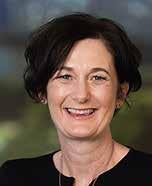 Debbie Smith Chair of School Council
Debbie Smith Chair of School Council
2/ESG
Message from the Principal
St Margaret’s Anglican Girls School, in Brisbane inner northern suburbs, is an independent day and boarding school for girls from Pre-Prep to Year 12 and boys in Pre-Prep and Prep. The school has a long and proud history of educating girls from across Brisbane, and a strong boarding tradition which has educated generations of women from all parts of Australia’s rural and remote regions and international students from across the globe.
I am honoured to have led the school as Principal since 2011. There are many elements of an ESG Statement that St Margaret’s has been focused on, some for many years. We have implemented sustainability initiatives across multiple areas, always been highly cognisant of good governance, and consider both staff and student wellbeing the wellspring of good learning.
An ESG Statement gives us the opportunity to further examine our practices against the holistic goals of such a document, institutionally embed goals that are achievable and measurable, develop strategies to meet them, and, crucially, monitor our progress.
Guided by the philosophy of the Society of the Sacred Advent, the school has always sought to empower young women through education to contribute to the common good. Thus, St Margaret’s aim is for its students to contribute not only through their god-given gifts and the gift of education, but through the gift of giving back, and a strong philanthropic culture is developed at school and nurtures the good citizens of tomorrow.
Just as our Strategic Priorities guide our direction, an ESG Statement can hold us to account as to how we get to where we are going.
The ESG Statement will address all aspects of our operations and extend to all members of our community, who all – be they teaching or support staff, parents or contractors – have a role in educating the future custodians of the planet through modelling best practice across all areas of our influence.
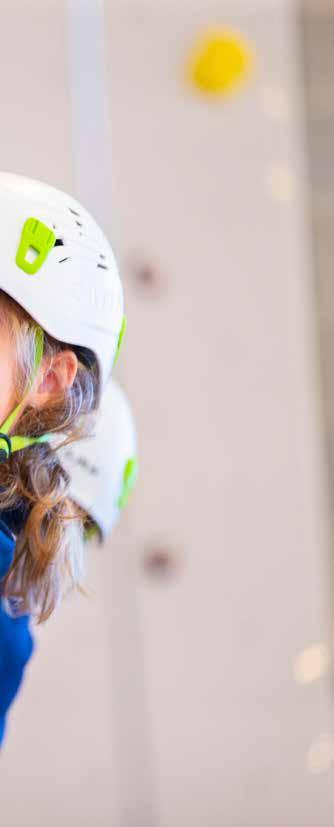
I am confident the measures laid out in this document will be embraced by the St Margaret’s community members and that we will embark on this journey together with commitment and diligence.
Ros Curtis Principal

ESG\3
Goals of the Environmental, Social and Governance Statement
Our approach to our ESG goals ensures we are embedding sustainability across all the environments that contribute to creation of an outstanding student experience, while strengthening governance to robustly oversee and manage progress towards our stated goals. These include the Academic, Social, Physical and Virtual environments.
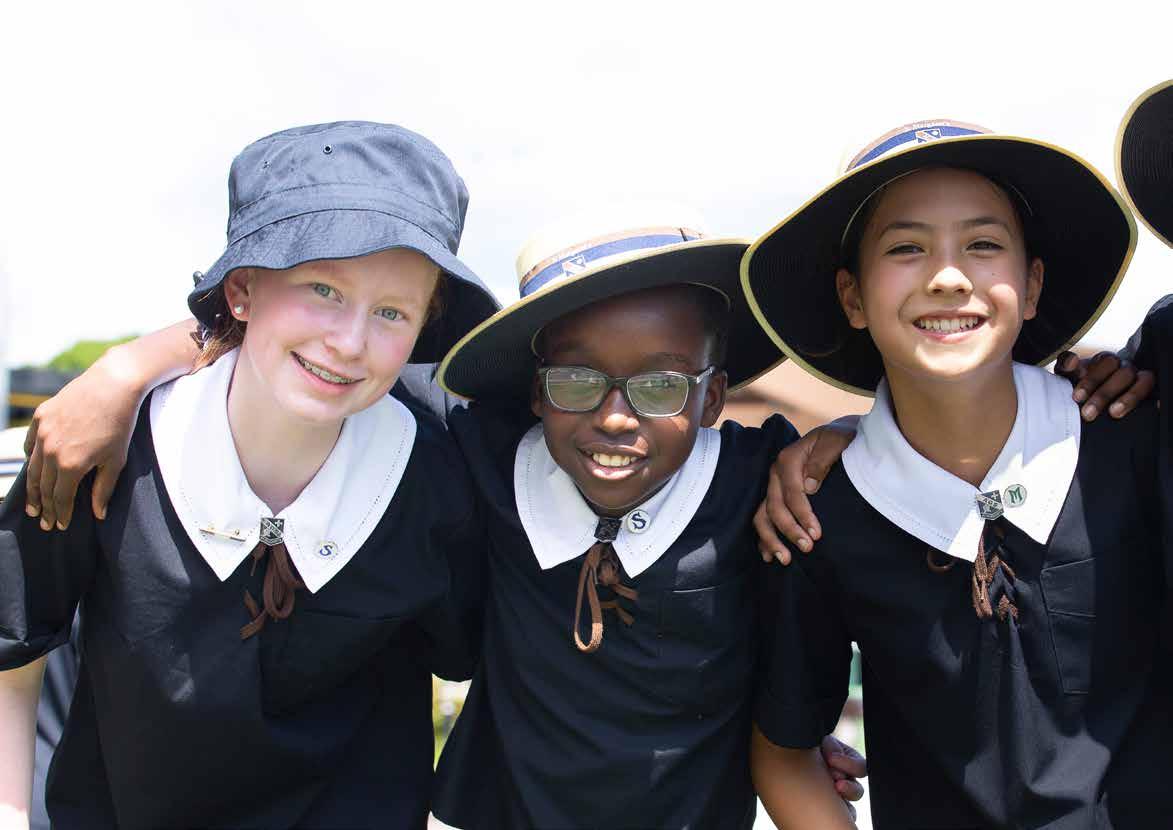
4/ESG
There is an overarching commitment to contribute to the United Nations Sustainable Development Goals.
Environmental
• Integrate ESG goals into the teaching program
• Commit to a circular economy approach to school operations
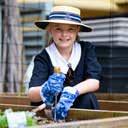
• Create a specific food waste and carbon reduction strategy
• Focus on sustainability in uniforms and reduce branded ‘merchandise’
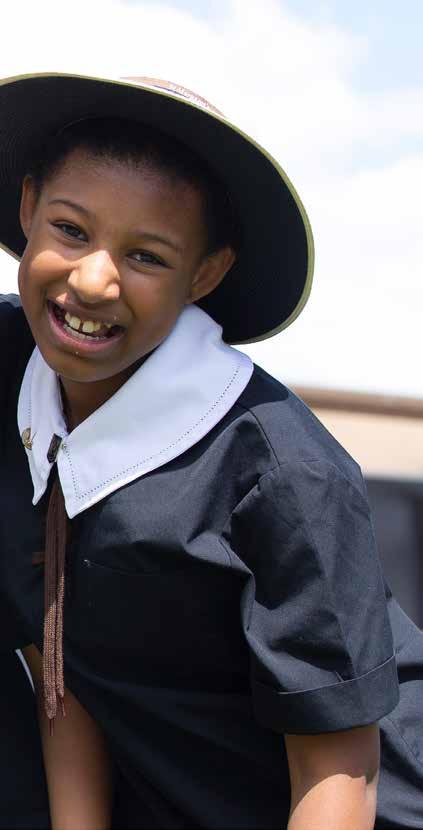
Success in achieving the ESG goals outlined in this statement will require a coordinated and whole of school response in which the themes and priorities outlined in the statement are embedded into the school’s strategic and operational planning and reporting.
Social
• Continue supporting staff and student health and wellbeing
• Lead progress on gender equity and inclusion
• Advance Aboriginal and Torres Strait Islander peoples

• Address modern slavery issues
• Continue to develop a culture of philanthropy to help address disadvantage in our communities
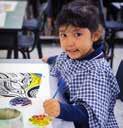
Governance
• Decision making underpinned by the school’s values and the Philosophy of the Sisters of the Sacred Advent
• Continue to uphold the highest of standards of ethics and integrity
• Ensure accountability and effective decision making
ESGl\5
Our contribution to the UN Sustainable Development Goals
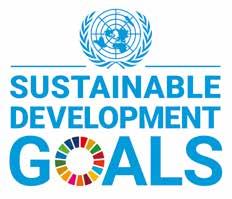
The United Nations Sustainable Development Goals (SDGs)– or the Global Goals – are a globally agreed blueprint to achieve a better and more sustainable future for all by 2030. The 17 goals and 169 targets encompass the social, economic, and environmental dimensions of sustainable development and provide an internationally agreed framework to build an inclusive, sustainable, and resilient future for people and planet.
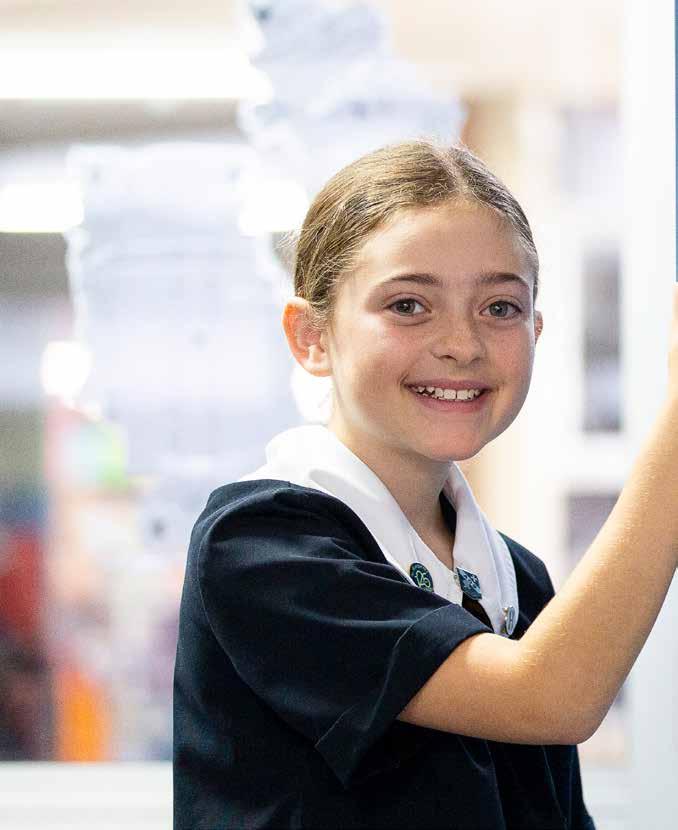
6/ESG
We also seek to contribute to the achievement of the following Global Goals:

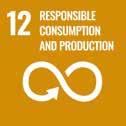
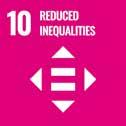
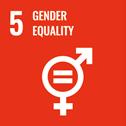
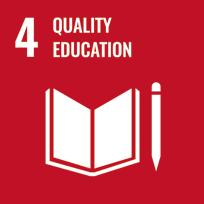
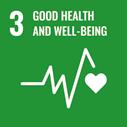
The goals most relevant to St Margaret’s are underpinned by the goal for quality education – which aims to ensure inclusive and equitable quality education and promoting lifelong learning opportunities for all. This is central to our strategy. We provide a holistic education for all our students and encourage intellectual curiosity. We appreciate there are many children who do not have access to the education our students receive. We look to provide support where it needed and requested, where and when we can..
We promote a positive approach to physical and mental health and wellbeing through the daily activities of the school and strong pastoral, sports, and wellbeing teams. Deep and attentive pastoral care is core to all aspects of life at the school. We ensure that we have relevant and up to date policies that protect our staff and students.
We aim to empower all our young women to expect to live in and help create a world of gender equality, by providing educational experiences that cross traditional gender barriers; giving equal opportunity and access to academic and extracurricular experiences; and cultivating interests that are not divided along gendered experiences or so-called ‘norms’. Our wellbeing programs aim to educate young women around issues of consent, ensuring they can stand in their power in this aspect of their lives.
We take a holistic approach to communitybased activities. A strong sense of social mission underpins all that we do, and we are committed to an admissions program that enables access to the school for children of all cultural backgrounds. We continue to ensure our proud boarding tradition, together with our longstanding partnership with Yalari, offers opportunity and access to rural and remote students, including Indigenous students.
Our current priorities are to substantially reduce waste generation and to establish a procurement program focused on goals for sustainable supply chains, as well as ensuring those chains are not connected to modern slavery. The aim is to achieve a circular economy where there is limited waste. We will reuse, repair, refurbish for as long as possible and recycle so the products of today become the raw materials of tomorrow. We aim to move towards paper independence, transitioning to increasingly digitised systems and communications.
We are conscious that the emissions from our activities contribute to climate change. We recognise our responsibility to significantly reduce our energy consumption, to use renewable and low carbon energy wherever possible, and to work towards verifiable and sustainable net zero targets.

ESG\7
Environmental
Professional development programs provide teachers with instructional tools to improve teaching and learning about climate change, climate solutions and sustainability. We will increase professional development opportunities for staff in order to support how these topics can be incorporated across the curriculum.
It is important to educate staff and students on the importance of conserving energy and what they can do to conserve energy. We will provide opportunities for hands-on learning and student leadership on energy efficiency and climate mitigation. This can also be accessed outside the curriculum through membership of the Student Enviro Group and the Staff Sustainability Committee.
Commit to a circular economy approach to school operations and resource use with a strong focus on waste reduction
Towards net zero
With a campus that has been developed over the past 125 years, the school’s built environment is a significant contributor to carbon emissions, therefore, we will enhance investment in the school by ensuring the sustainability credentials of acquired assets.
New construction – all new construction on the campus will be undertaken with an emphasis on energy efficiency and a low environmental footprint Transport – St Margaret’s has a fleet of nine vehicles and contracts 125 hours per week for school buses to transport children both to/from school and to school events held off-campus. There are also a significant number of students travelling to and from school by car, and the rowing program uses 13 boats with outboard motors.
• The school has a commitment with our bus contractors to reduce bus idling. In sourcing external providers into the future, high priority will be given to those who can provide loweremission options such as hydrogen or electric.
• For future purchases of any motor vehicles, lower carbon options will be pursued.
• Action around pick-up/drop-off traffic congestion: We are a member of the Brisbane City Council Active School Travel program that is aimed at creating healthier, more active students and families, increasing road safety awareness, safer streets and continuing to address traffic congestion.
• Provide more bicycle racks and space for bicycle storage to enable students and staff to ride to school. Ensure shower space remains sufficient for growing staff numbers. Allowances to be made for students who are riding to school to be able to wear their sports uniform.
Energy – The school is a high user of electricity. The school will:
• ensure that all power purchased is from green sources of energy

• conduct an energy audit to understand and measure our current emission profile and identify opportunities to reduce our energy consumption
• investigate where we can introduce solar or other sources of micro-generation on campus.
Changing behaviour in the use of buildings is as important as technical measures. Energy use data will be used to communicate and educate staff and students as a means of limiting consumption. We will create a “good energy” guide on the energy efficient use of buildings, i.e., switching off lights, IT equipment etc. We will continue to engage with students for their ideas and suggestions and engage staff more closely in these strategies.
We will establish a decarbonisation target and measure our performance against the target.
8/ESG
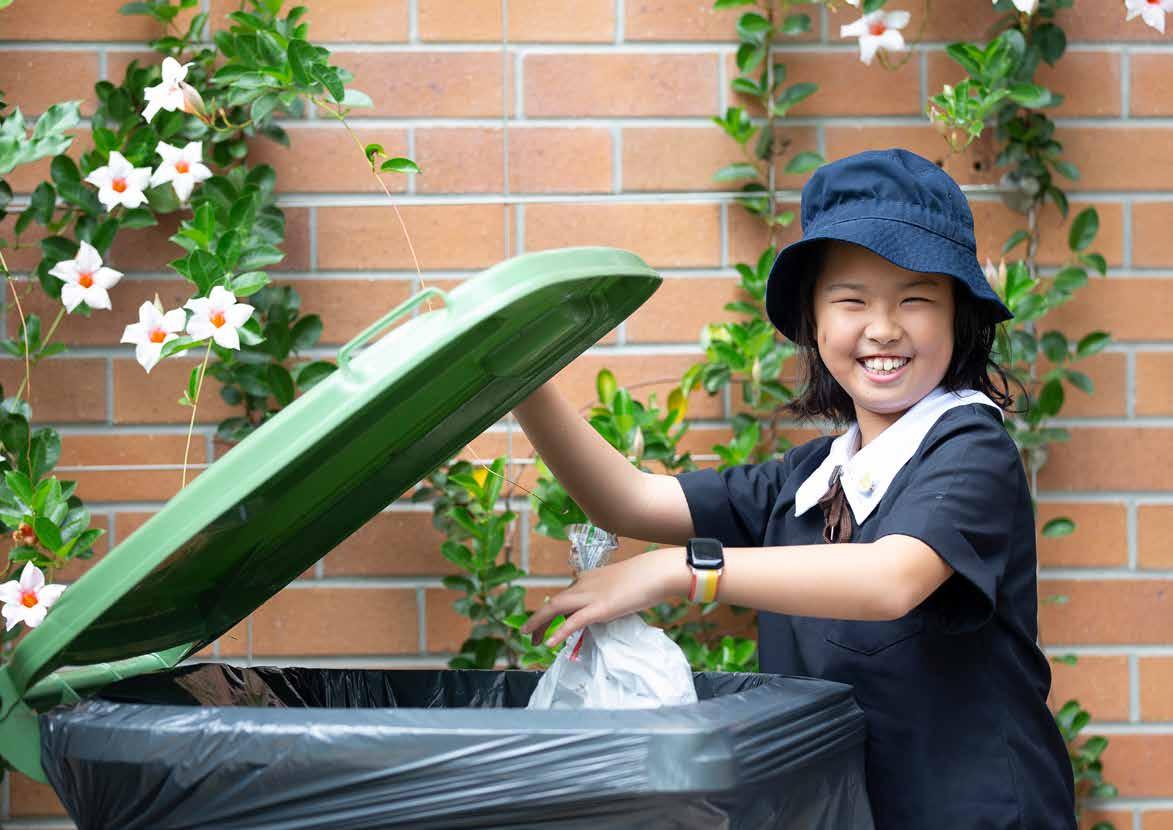
ESGl\9
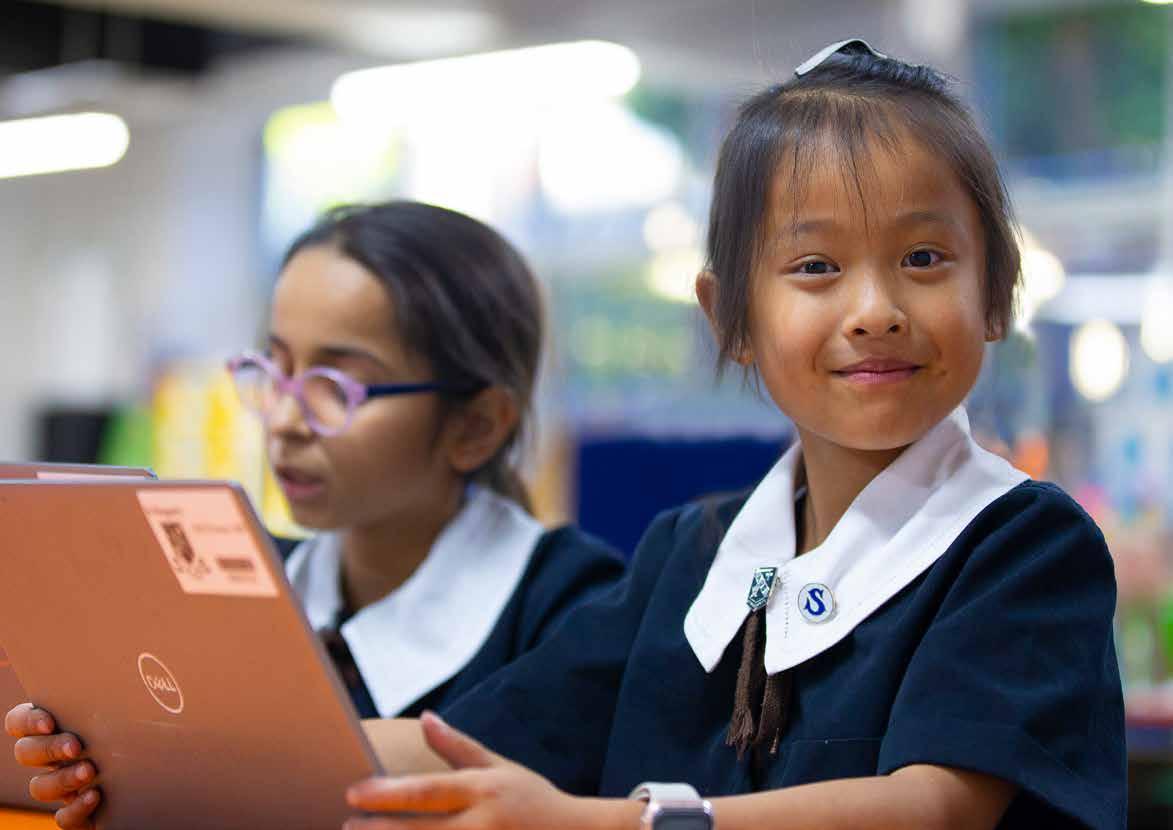
10/ESG
Waste Reduction Areas:
Second-hand uniforms and textbooks
Minimise waste to landfill
Eliminate single-use plastics
“Nude Food” Days
Water saving and paper reduction
Waste Recycling Strategies:
Recycling bins for bottles and cans placed in key locations around the school. The Scouts recycling program has been implemented to recycle and the school receives 8c per item, with the purpose of this income being reinvested in sustainability measures. Recycling bins for other recyclable waste to be added around the school. Paper recycling system used. Paper waste receptacles placed in all classrooms and key areas of the school.
All printer cartridges recycled through Fuji Xerox. Recycle boxes for these in school
Development of a program to use recyclable plastic for 3D printing in STEM. Compost bins and worm farms for
Explore opportunities to establish our own community compost or participate in other community compost programs.
Waste Reduction Strategies:
• No more use of takeaway coffee or drink cups at M’s Cafe. Use of keep cups only.
• Straws for cold drinks no longer supplied.
• Limit the printing of school publications. All publications appropriate for digitisation made available on the school website or The POD (if internal); those that need to be printed, only printed on eco-credentialed paper. Strong encouragement for readers to adopt digital versions.
• Office operational forms to be changed to Microsoft Forms.

• Student/Staff/Parent communications to be all in electronic format through the learning management system (POD) and other electronic communication.
• Classroom practices to move to less paper, enhancing capabilities of the POD and another electronic means.
• Adjustment of stationery and textbook lists to ensure fewer materials are needed; encourage reuse of items where appropriate
• All school events and functions to reduce waste such as food packaging and when needed use fully recyclable food packaging
We will work with our students, staff and partners to gather ideas on how we can improve our waste statistics. We will then supplement with expert advice on best practice and create a “good waste guide”.
We will track our waste removed per month per item. We will report on the volume of waste removed per waste stream e.g., general, recycling, food, shredding. We will put in place steps to increase our recycling.
We will track, monitor and report water usage and work with all stakeholders to develop improved awareness of wasted water and of the opportunities for reducing consumption.
Food Waste Strategies
• Procure food supplies from local sources, reducing the distance these supplies travel to the school and decreasing the amount of greenhouse gases emitted from transportation. Procuring local food supplies also supports local industry and fresh produce supports student health.
• Edible gardens: the school will grow its own herbs for use in areas of the school that provide food service. The Primary School also has a vegetable garden, where the students grow vegetables and then take home for use. There is also a gardening club that meets once a week in the primary school.
• Food production is to be carefully managed so there is minimal waste. Leftover food can be provided to other areas of the school if safe to do so (in line with food safety standards).
• Investigate food composting options and implement this system in the Boarding House. Consider further a partnership with a community-based organisation to support some on-site and off-site composting.
A focus on sustainability in uniforms and reduction in branded merchandise
The school is committed to reducing the number of uniform items that are required for the various activity groups across the school. Many clothing items have already been identified and uniforms adjusted so that these items are used in a variety of activities.
We will reduce the number of items and merchandise required or included in each activity. The principal has addressed the Parents and Friends Association about this goal, so that support groups can also understand the implications around the cost and waste of too many items supplied to students undertaking these activities. The school’s modern slavery policy will incorporate a supplier process that assesses the ESG standards of all suppliers across all goods and services.
ESG\11
SOCIAL
The school will lead progress on gender equity and inclusion through practices that encompass all members of our community. Both staff and student recruitment will be conducted through an ESG lens, ensuring a richly diverse and inclusive community and equal opportunity for all.
Students
• Empowering young women
• Old Girls’ Association
• Broadening Horizons Careers Program
• Empower program
• Beyond the Panama program
• Professional Women’s Network
• Aspiring Young Women’s Network
• St Margaret’s Mentor Plus program for current students
• Certificate courses provided to all students in Year 10
• Alternate pathways for students in Years 11 and 12 –ATAR and portfolio pathways
• Primary Careers Program
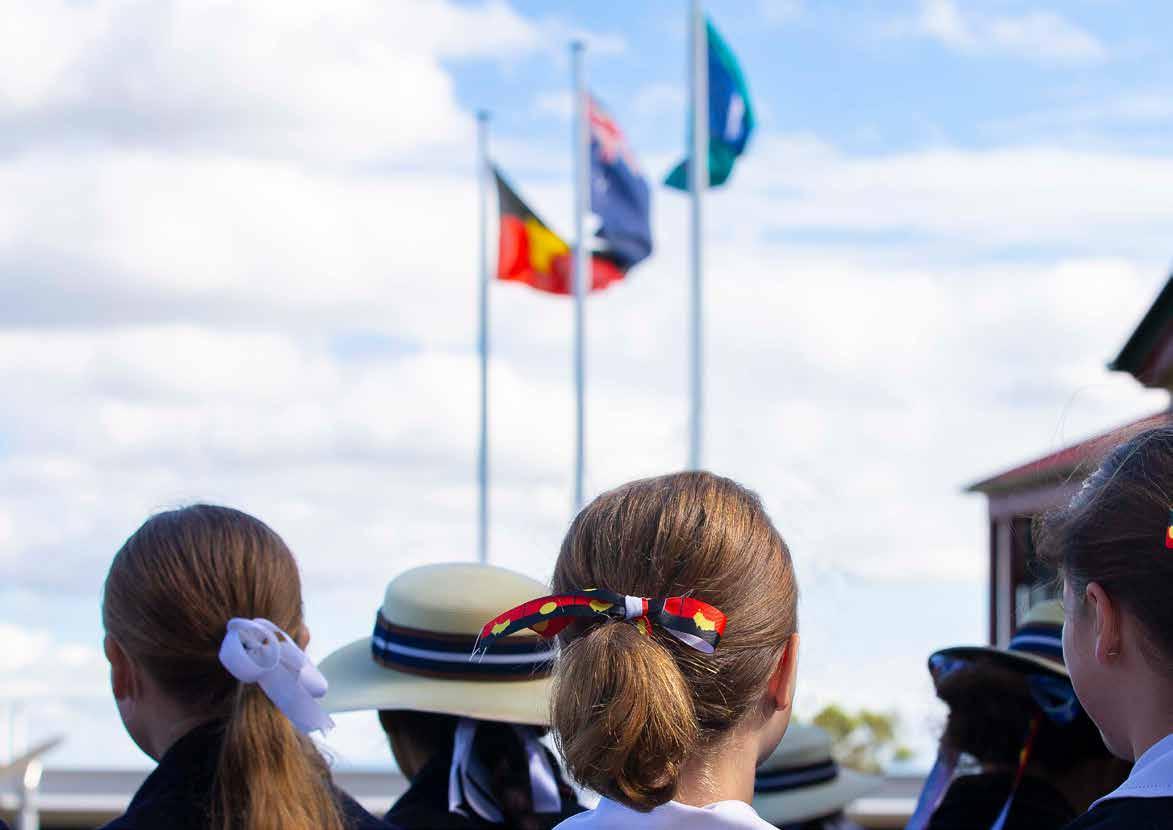
12/ESG
Advance Aboriginal and Torres Strait Islander peoples
Aboriginal and Torres Strait Islander Histories and Cultures, and Sustainability have been identified as two of the key cross-curriculum priorities of the Australian curriculum. As such, these priorities are addressed throughout each learning area, rather than comprising a curriculum on their own. Therefore, there are many opportunities to add depth and richness to student learning throughout all classes, with strong but varying presence depending on relevance to each learning area. In addition, there are dedicated actions and activities we can promote to advance Aboriginal and Torres Strait Islander peoples
• Yalari Indigenous scholarships
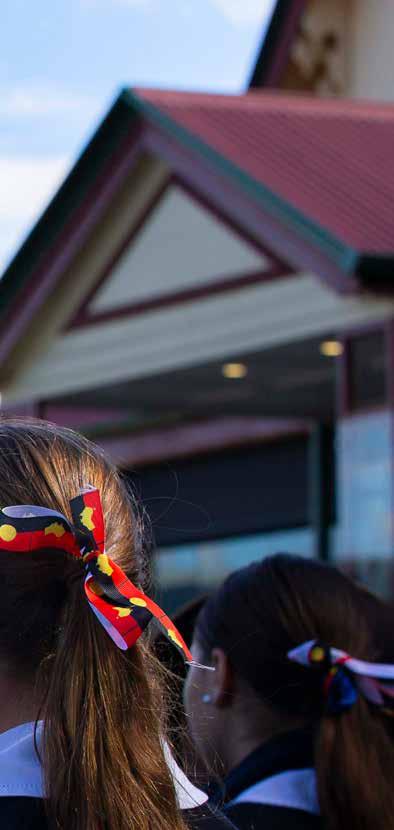
• Reconciliation Action Plan student and staff representation
• First Nations employment
• Gidhal and Mulu Maguydan publications
• NAIDOC Week celebrations
• Mabo Day assembly
• Sorry Day Ceremony
• Floral Friday
• Primary Cultural Awareness workshops
Address modern slavery
The school is committed to understanding potential modern slavery risks within its operations and thereby ensuring there is no slavery or human trafficking taking place in its operations and supply chains. This commitment extends to all persons working for the school or on our behalf in any capacity, including employees at all levels, officers, agency workers, seconded workers, volunteers, agents, contractors, and suppliers.
The school’s modern slavery policy defines the practices which constitute modern slavery and outlines the principles which will inform the policy’s implementation both internally and externally.
Continue supporting student health and wellbeing
We take the health, safety, and welfare of our students and colleagues seriously. Investing in health and wellbeing is critical if we are to enable students and colleagues to perform at their best.
• Weekly Student Pulse check-ins for students –monitoring school wellbeing and engagement for students
• Student Wellbeing Framework – operational practices categorised into five areas of Academic Care, Age-Appropriate Student Focused Programs, Care of Boarders, Service to Others, and Staff and Students
• St Margaret’s Way
• Secondary Pastoral Care Team: Dean of Students, Heads of Year, Chaplain, Student Counsellor, Student Wellbeing Coordinator, Student Wellbeing Coordinator – Boarding, Learning Enhancement Coordinator, International Pastoral Care Coordinator
• Primary Leadership: Head of Primary and Assistant Head of Primary – Wellbeing and Operations
• Pastoral care program for each year level across the school
• Pastoral care days with external providers for all year levels in the secondary school each term
• Pastoral Care lessons each week in the primary school
• Parent Information sessions
• Form classes in Years P-8, Academic Advising in Years 9-12
• Student Camp Program
• Transition Days – New students, Year 6 to Year 7, Boarding
Continue to develop a culture of philanthropy and social responsibility to help address disadvantage in our communities
Through its various student and staff-led programs, and in the spirit of the Sisters of the Society of the Sacred Advent, St Margaret’s will continue to grow and encourage a philanthropic culture to support those disadvantaged or facing challenges (economically, socially, or physically) in our communities – both locally and globally.
ESG\13
GOVERNANCE
Ensuring accountability and effective decision making
Our success requires robust governance practices that set out clear lines of accountability and facilitate effective decision-making and controls. Founded and developed by the hard work and dedication of the Sisters, in recent years, the remaining Sisters in the Order have taken on a less hands-on role in the running of the school while setting in place protocols which ensure their legacy and philosophy endure. Today, the Society of the Sacred Advent Schools Pty Ltd is the Trustee of separate Trusts established for both St Margaret’s and St Aidan’s Anglican Girls schools. St Margaret’s School Council is the Trustee’s agent which operates St Margaret’s and is governed by its Constitution and takes guidance and direction from the Philosophy and Mission Statement of the Society of the Sacred Advent. In addition, where possible, St Margaret’s is represented at various levels in peak industry bodies, such as Independent Schools Queensland, Alliance of Girls School, Qld Girls Secondary School Sports Association, the Association of Heads of Independent School of Australia to name a few. A seat at these tables ensures not only that St Margaret’s has a voice, but that it also benefits from the experience and expertise of other member schools within these associations.
St Margaret’s School Council provides the school with vision, strategic guidance, resources and finance for operations and development. The substantial, broad-based and intentionally diverse skills and expertise of School Council members provide support and confidence in all decisionmaking processes.
Council includes five sub-committees and working parties: Nomination and Renumeration, Finance Audit and Risk Management, Ethos, Master Planning, and Corporate Partnerships. The Senior Leadership Team has responsibility for the implementation of the strategy and dayto-day management. It comprises all members of the Educational Leadership Team, which includes the Principal, Deputy Principal, Chaplain, Head of Primary and two Assistant Heads of Primary, the three Deans (of Students, Studies, and Academics), and the Head of Boarding, together with core ancillary department Directors (Business, IT, Human Resources and Marketing and Communications).
The Principal and Deputy Principal are the ESG Sponsors and voice for ESG matters on the Senior Leadership Team. The diverse representation on the Senior Leadership Team enables effective provision of leadership, guidance, and support to our school with a focus on delivering an outstanding student experience. They are the keepers of the strategic goals and filter these down through their areas of responsibility and work collaboratively and collegially to seamlessly bring together the many areas of operation required to deliver an exceptional education.
Continue to uphold the highest of standards of ethics and integrity
We take extremely seriously our responsibilities as educators and corporate citizens.
St Margaret’s is committed to the very highest standards of ethics, integrity, and transparency and in all interactions with our stakeholders: students, colleagues, educators, regulators, authorities, collaborators, and business partners. We have a code of conduct and policies and procedures that are reflective of applicable laws and regulations and the Philosophy of the SSA.
1. We have zero tolerance for all forms of bribery and corruption and have strict procedures to ensure avoidance of conflicts of interest and financial fraud.
2. We act in accordance with all applicable laws and regulations

3. We remain vigilant to protect the rights and freedoms of all individuals involved in our school and supply chains, including strict procedures to ensure no child or forced labour practices.
4. We apply commercially reasonable means and precautions to protect the personal data entrusted to us
5. We treat everyone with dignity, fairness, and respect, providing safe and inclusive environments to work, study and collaborate – free from harassment and discrimination of any kind, including on the basis of distinct personal characteristics such as gender, culture, sex, ethnicity, religion, or sexual orientation.
14/ESG

ESG\15
Conclusion
Put simply, the goal of adopting an ESG Statement is our individual and corporate commitment to help ensure we are doing everything now and into the future to make the world a better place to live and work in. The 21st century brings with it major challenges and a greater sense of urgency to act. The adoption of an ESG Statement by an educational institution helps to ensure an army of future leaders are equipped with the awareness, skills, knowledge, and aptitude to address these challenges, from climate change and gender equity to modern slavery.
As education providers, it is our moral obligation for our students and wider school community to understand these challenges and take the lead in all these areas and model ways to combat the significant environmental, social and governance issues of our day to ensure a better future for all.
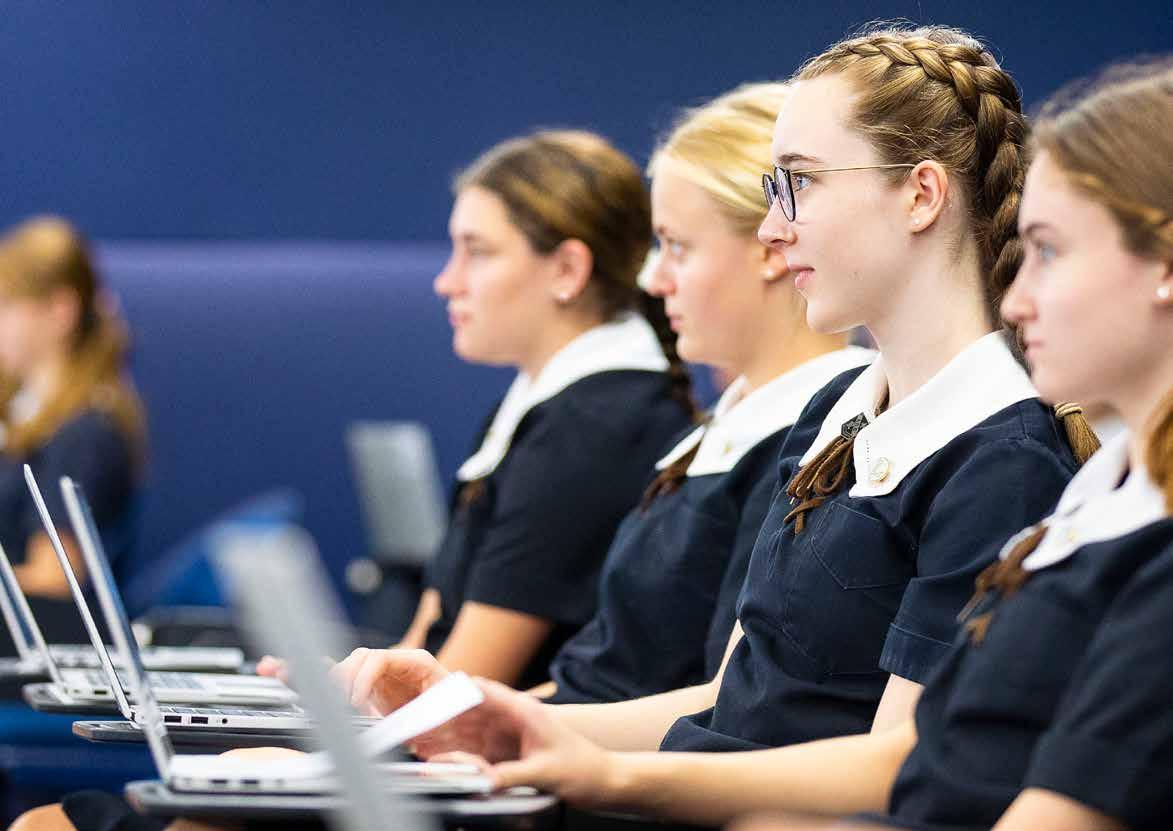
16/ESG


 Debbie Smith Chair of School Council
Debbie Smith Chair of School Council

























